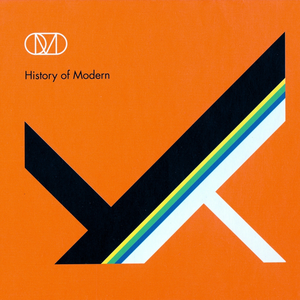Published on Dec 1, 2010
For those retrophiles desperately holding onto the few scraps of the vestiges of ‘80s synth-inspired pop music, an OMD reunion with its most celebrated lineup should make them glow with giddiness. Moreover, for a seasoned OMD fan, the experience of History Of Modern should result in no less exuberant a reaction than opening that bottle of expensive champagne that was being stashed away for a special occasion.
History Of Modern provides plenty to celebrate the early years of OMD. The track “Sister Mary Says” with its uppity tempo and gleeful poppiness is truly the one for fans wanting another “Enola Gay.” The same with “”History Of Modern” (Parts 1 & 2), where the synthesizer sounds are so unique to the ‘80s that they transform you back to the earliest and the brightest days of this band. This record doesn’t skimp on the antics of the early synth-pop movement, which climaxes with the totally artificial and artless steam-engine sounds on the paradoxically titled “The Future.”
In its sincerest efforts to bring to life the music of the yore, OMD doesn’t give the new synth-pop missionaries of this generation like LCD Soundsystem a run for their money. Unlike the indie hipsters adding a contemporary twist to the beloved music they grew up with, OMD has frozen its music in the amber of the past. There is no comparison. Because of the gross retro authenticity of a good chunk of History Of Modern, it is kind of novel, even in these days where ‘80s-inspired music is trendy.
However, OMD’s creative juices on this album extend beyond just romanticizing its past. There are plenty of updated modern sounds, smoothly abutting the outmoded ones. The apt album opener “New Babies New Toys” with its most genuine enthusiasm, grandiosity, and energy (with the aid of some very slick beats) heralds OMD as a band set to leave its footprint in the current decade. “Sometimes” has no baggage of the old OMD and is musically modern and polished, even though it is saddled with the band’s old-time balladry styling. “Pulse” is the most anti-OMD cut the band ever made, straight out of the darkly psychotic world of trip-hop. And the closing cut “The Right Side” is one that OMD never wrote in its waning years of the late-‘80s/early-‘90s: a starkly beautiful expression of the synth-pop transformation from frivolous mawkishness to reflective moodiness; although much is to be credited to the band Komputer and its song “Looking Down On London,” which is the musical core of “The Right Side.”
OMD hasn’t evolved much, despite the fact that its synth-pop contemporaries have moved on to fresher sounds. But the stick-to-itiveness of Andy McCluskey, Paul Humphreys, Martin Cooper, and Malcolm Holmes on History Of Modern seems more self-assured than desperate. For a band that has long ago ceased being interesting, this is definitely an interesting – if not surprising – record.
“
